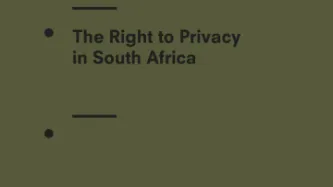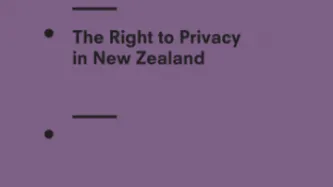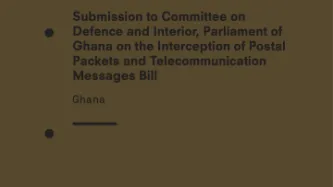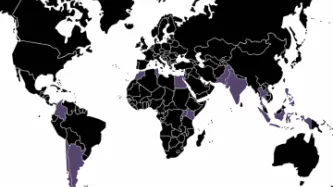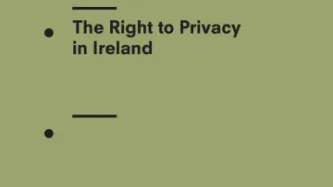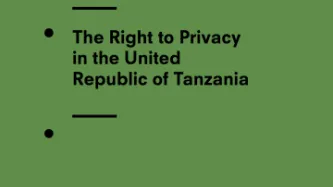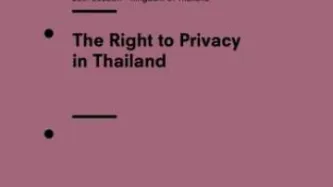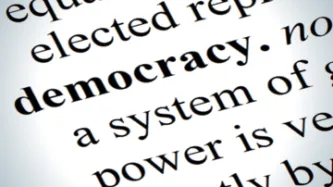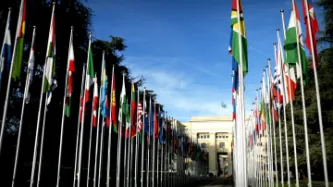Search
Content type: Advocacy
Privacy International, Right2Know, and the Association for Progressive Communications (hereinafter “the organisations”) note the written replies by the government of South Africa to the list of issues on South Africa’s laws, policies and practices related to interception of personal communications and protection of personal data.
The organisations have on-going concerns on the practices of surveillance by South African intelligence and law enforcement agencies. In this submission, the…
Content type: Advocacy
Privacy International notes New Zealand’s written replies to the list of issues prior to reporting in relation to the New Zealand’s laws, policies and practices related to interception of personal communications.
A review of the security and intelligence legislation is currently underway in accordance with the Intelligence and Security Committee Act. It is expected that the Parliament will consider the review in 2016. Hence this represents a significant opportunity to amend the current…
Content type: Advocacy
Summary of PI’s and ARTICLE 19’s joint submission to the Defense and Interior Committee of the Ghana Parliament calling for it to abandon rushing through a controversial new surveillance Bill.
Content type: Long Read
Today, Privacy International is publishing the result of a global effort to benchmark surveillance policies and practices in the countries that are part of the Privacy International Network. We’re calling it the ‘State of Surveillance’.We designed a survey of questions based on some key issues: statistics about the communications infrastructure of the country; what civil society organisations and groups that analyse privacy issues; the international and domestic legal framework regulating…
Content type: Press release
Privacy International today publishes a new investigation, based on exclusive documents, exposing the sale of European surveillance technologies to a secret unit of Egypt's intelligence infrastructure.
The Technical Research Department (TRD) is an independent unit within the General Intelligence Service (GIS), accountable only to the President. According to sources, the TRD has the biggest budget for surveillance technologies of any Egyptian government body. Such large public expenditure…
Content type: Advocacy
This stakeholder report is a submission by the Hungarian Civil Liberties Union (HCLU) and Privacy International (PI). HCLU is a human rights organisation that takes stand against undue interference and misuse of power by those in positions of authority. PI is a human rights organisation that works to advance and promote the right to privacy and ght surveillance around the world. HCLU and PI wish to bring concerns about the protection and promotion of the right to privacy in Hungary before…
Content type: Advocacy
This stakeholder report is a submission by Privacy International (PI) and Digital Rights Ireland Ltd. (DRI). PI is a human rights organisation that works to advance and promote the right to privacy and ght surveillance around the world. DRI is an Irish group dedicated to defending civil, legal and human rights in a digital age. PI and DRI wish to bring concerns about the protection and promotion of the right to privacy in Ireland before the Human Rights Council for consideration in Ireland…
Content type: Advocacy
This stakeholder report is submitted by the Tanzania Human Rights Defenders Coalition, the Collaboration on International ICT Policy in East and Southern Africa and Privacy International (PI). PI, THRDC and CIPESA wish to bring concerns about the protection and promotion of the right to privacy in the United Republic of Tanzania (thereafter “Tanzania”) before the Human Rights Council for consideration in its upcoming review.
Content type: Advocacy
This stakeholder report is a submission by Privacy International (PI) and Thai Netizen Network (TNN). PI is a human rights organisation that works to advance and promote the right to privacy and ght surveillance around the world. TNN is a Bangkok-based organisation that works to promote human rights in Internet policy and support the work of human rights defenders in digital environment. PI and TNN wish to to bring concerns about the protection and promotion of the right to privacy in…
Content type: Press release
Today’s report by the Joint Committee on the Investigatory Powers Bill is the third committee report that concludes that the Home Office has failed to provide a coherent surveillance framework.
The Joint Committee on the Investigatory Powers Bill today published a 198 page report following a short consultation period between November and January. Their key findings are that:
- the definitions in the bill need much work, including a meaningful and comprehensible…
Content type: News & Analysis
The problems with thematic warrants and why they should be removed from the UK Government’s Investigatory Powers Bill
We currently have the rare opportunity to scrutinise and debate the powers that law enforcement, the security and intelligence agencies and public bodies should have to interfere with our private communications, our devices and our digital lives. These powers are being enshrined and expanded upon in the draft Investigatory Powers Bill (IP Bill), currently under scrutiny by the…
Content type: News & Analysis
In 2015 the United Nations' human rights mechanisms significantly increased their capacity to monitor and assess states' compliance with their obligations around the right to privacy. Notably, the Human Rights Council established the mandate of the Special Rapporteur on the right to privacy, filling a significant gap in the international human rights protection system. Meanwhile, the Human Rights Committee put surveillance laws and practices in a range of countries under close scrutiny, making…
